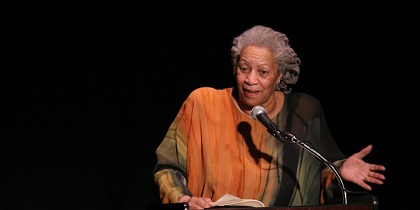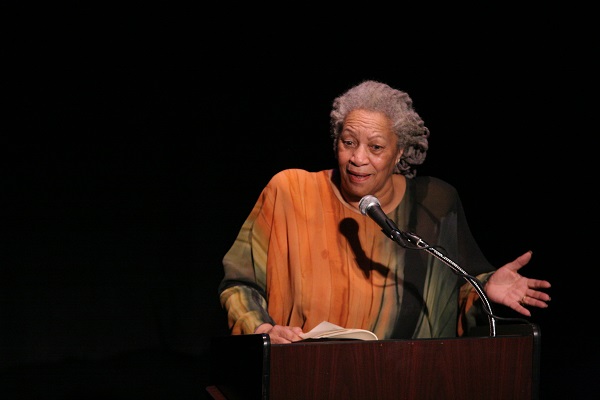
June 10, 2019, by Sunita Tailor
Book review on Slavery in Toni Morrison’s ‘Beloved’
This blog was written by first year English student, Harriet Mills.
Morrison gives the voice to the people who didn’t have one and for me this is what made her tale on the impact of slavery, such an interesting and eye opening read. True, we cannot empathise with the characters but such a detail on the psychological and physical effects it had on its victims aids our imagination on the brutality of such a corrupt system – the African American slave trade.
When looking at actions of the protagonist Sethe, we realise the extent of the horrors. She feels is it kinder to murder her own child then allow her to grow up and face the torment and abuse intertwined with slavery, and in some distorted way, the reader is shocked by her behaviour but they do not see it as unjust. While Sethe is a fictional character, her actions are based on a real life event. Margaret Garner was a runaway slave from Kentucky who murdered her youngest child and planned to do the same to the others then let them return to such a toxic life. That’s how bad it was.
The particular use of animalistic imagery lends us an insight into the degrading nature of slavery, and how workers were meaningless, nameless and worthless. Scenarios such as Sethe having her breast milk stolen not also shows her being stripped of her motherly duties but also is one performed on cattle, suggesting she is no more than this. Paul having an Iron bit wedged in his mouth mirrors the treatment of a horse and how his labour was similar to one performed by one.
However, I think one of the most important aspects of the text is how Morrison explores the ways in which slavery impacts you after you have left. Even though Sethe leaves Sweet Home she is still imprisoned by the memories that stay with her. By using a literal ghost Beloved, it shows us how Slavery is the metaphorical ghost that haunts you, whether through physical, or emotional mental and spiritual scars.
We see it from the perspective of the sufferers and therefore are exposed to the aspects, which may have been concealed to us from other authors. Morrison gives you the reality as harsh as it may be.

Image: Flicker: Angela Radulescu / (CC BY-SA 2.0)
No comments yet, fill out a comment to be the first

Leave a Reply